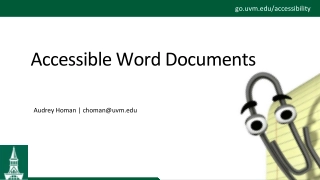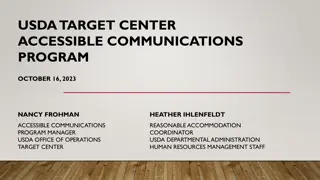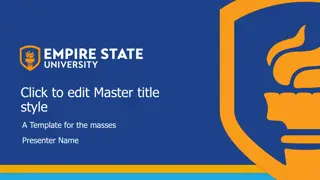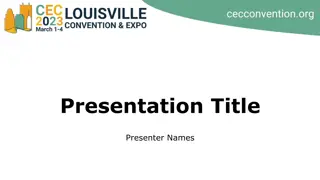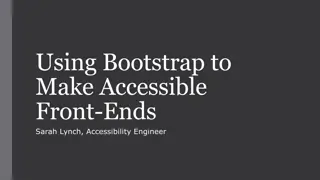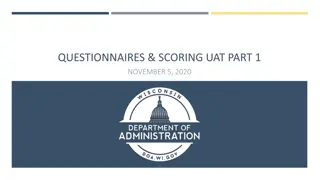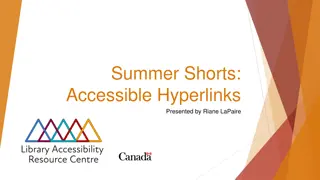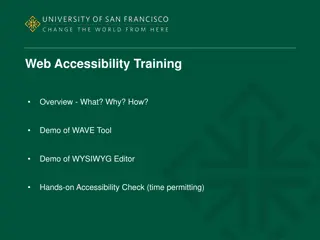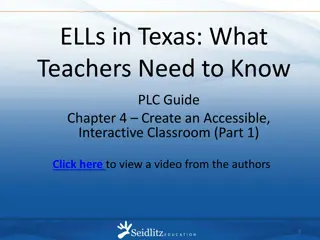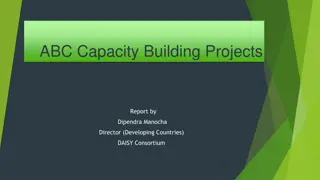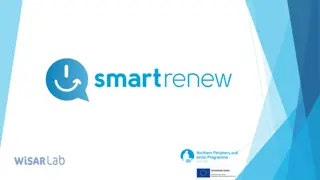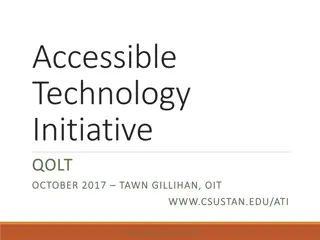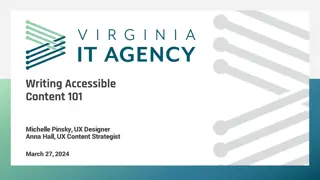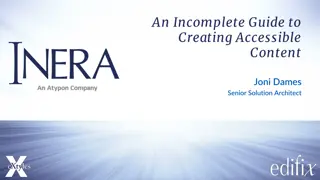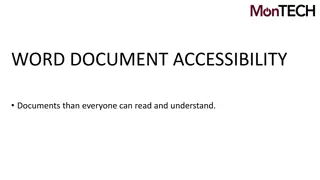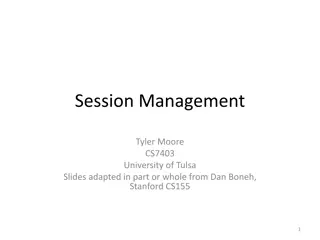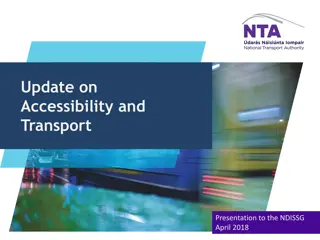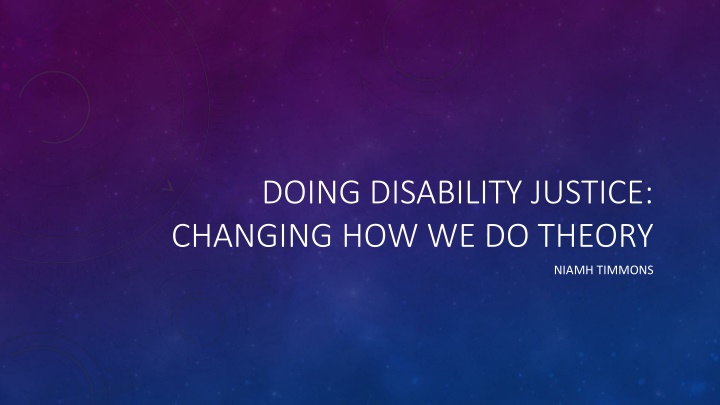
Changing Perspectives: The Intersection of Disability Justice and Embodied Knowledge
Explore the transformative realm of Disability Justice and Embodied Knowledge, delving into the critical discourse surrounding theory, activism, and artistic expression within the disability community. Engage with thought-provoking insights on redefining societal constructs and promoting inclusivity in this enlightening journey of understanding and empowerment.
Download Presentation

Please find below an Image/Link to download the presentation.
The content on the website is provided AS IS for your information and personal use only. It may not be sold, licensed, or shared on other websites without obtaining consent from the author. If you encounter any issues during the download, it is possible that the publisher has removed the file from their server.
You are allowed to download the files provided on this website for personal or commercial use, subject to the condition that they are used lawfully. All files are the property of their respective owners.
The content on the website is provided AS IS for your information and personal use only. It may not be sold, licensed, or shared on other websites without obtaining consent from the author.
E N D
Presentation Transcript
DOING DISABILITY JUSTICE: CHANGING HOW WE DO THEORY NIAMH TIMMONS
TALK OVERVIEW Disability Studies & Embodied Knowledge Theory Disability Justice Lover of Low Creatures Implications
DISABILITY STUDIES & EMBODIED KNOWLEDGE The field of Disability Studies has largely not addressed not the matter of embodied knowledge in favor of addressing the positioning of disabled people, our histories, and the construction of disability as a category. Embodied knowledge suggests that our bodyminds are producers of knowledge. Thus, they are worthy of engagement.
THEORY Theory is often viewed and constructed as belonging to academic intellectual work. I suggest that Disability Studies needs to pay attention to changes in engaging theory that have happened in Ethnic Studies and Gender and Sexuality Studies. Cherr e Moraga and Gloria Anzald a: A theory in the flesh means one where the physical realities of our lives our skin color, the land or concrete we grew up on, our sexual longings all fuse to create a politic born out of necessity (19). Malea Powell: We have lost sight of the simple fact that the only difference between a history, a theory, a poem, an essay, is the one we have ourselves imposed (15).
DISABILITY JUSTICE Disability Justice is distinct from Disability Rights as it moves beyond thinking about just rights based conversations. An integral part of Disability Justice is that ableism is always entwined with racism, classism, sexism, homophobia, and transphobia. It intentionally puts these issues as part of conversations about disability. Disability Justice organizations such as Sins Invalid have arts at their core of their project.
10 PRINCIPLES OF DISABILITY JUSTICE
LOVER OF LOW CREATURES https://www.youtube.com/watch?v=gXSj37rXG-s
THEORY IN PERFORMANCE Jacqueline Shea Murphy describes the work that dance can do as theory. As the body is thinking, commenting, critiquing, investigating (10). Song, dance, and imagery all contribute to forms of embodied knowledge and produce knowledge. In Lover of Low Creatures, this means producing knowledge about being Black, mixed race, disabled, and a survivor. It also explores the importance of working with ancestral knowledge and practices.
IMPLICATIONS How do we think about our bodyminds as contributing to our scholarship, lives, and activism? As disabled people, disability scholars, and people who work with disability, it requires thinking about how our bodyminds are constantly at play with the work we do. Further, thinking about Disability Justice as integral part of this requires us to rethink the structures we live in and how they impact disabled people.
SOURCES! Moraga, Cherr e and Gloria Anzald a. This Bridge Called My Back: Writings by Radical Women of Color, Fourth Edition. Albany: State University of New York Press, 2015. Powell, Malea. Listening to Ghosts: an alternative (non)argument. ALT DIS: Alternative Discourses and the Academy, ed. Christopher Schroeder, Helen Fox, and Patricia Bizzell. Portsmouth: Boynton/Cook Heinemann (2002): 11-22. Shea Murphy, Jacqueline. The People Have Never Stopped Dancing: Native American Modern Dance Histories. Minneapolis: University of Minnesota Press, 2007.

